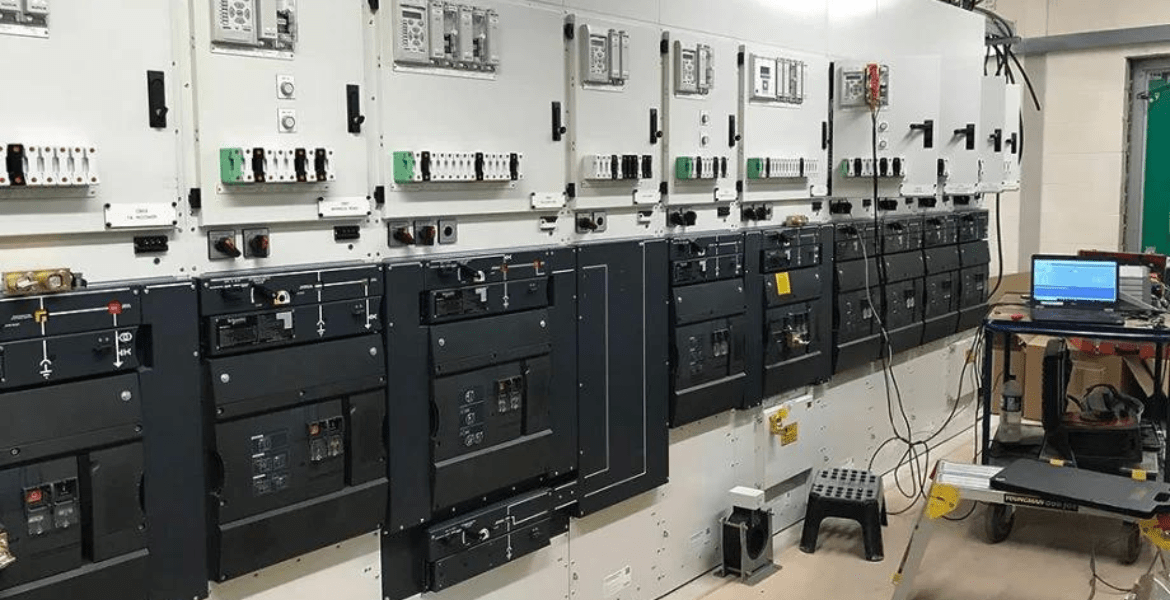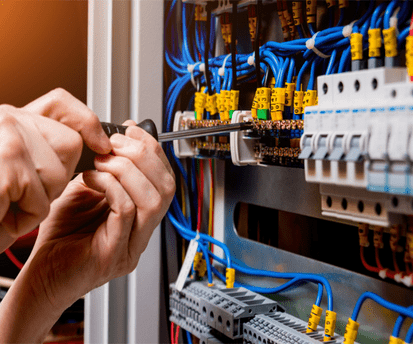Mechanical and Electrical Systems

In the United States, arcing faults cause more than 28,000 home fires each year, causing hundreds of deaths and injuries, and costing over $700 million in property damage. Among these residential building fires, faulty electrical systems are the third most common.
The above alarming fact warns us and signifies the importance of inspecting your house’s mechanical and electrical systems to maintain energy efficiency and avoid fire hazards caused by a faulty or defective electrical system.
What is Mechanical and Electrical Inspection?
During the mechanical inspection, built-in mechanical and electrical equipment is visually operated, electrical connections and installed wirings are inspected, and any defects spotted during the inspection are analyzed comprehensively.
These evaluations are done by mechanical and electrical inspectors, who are typically responsible for performing inspections, supervising maintenance, and designing safety tests.
What Does a Mechanical and Electrical Inspection Entail?
Evaluate Exterior Electric Wiring:
Electricity is provided to residential buildings via overhead or underground wiring. Main wires entering the home are examined by the inspector for their age, condition, and quality of installation.
Inspect Main Electric Panel:
As part of this inspection, we evaluate the main wires entering the panel, all circuit breakers, the legend labeling of the circuit breakers, the bonding/grounding lugs, and the wire and panel sizes. Our most common findings within panels include rusting/corrosion, damaged wires and breakers, double-tapping and extension cord wiring. In addition, overloaded circuits and loose wire connections are the most common causes of arcing faults and overheated wires, which can cause fires and damage to systems.
Call Today to Find Out More
or Schedule An Inspection.

Inspect the Branch Wiring of the Entire House:
All electrical wiring in bedrooms, bathrooms, hallways, foyers, kitchens, garages, basements, and laundry rooms is considered branch wiring. Every outlet, smoke detector, appliance, overhead light, and ceiling fan is tested for functionality by our inspectors. Inadequate smoke detectors cause approximately 65 percent of home fire deaths. Every bedroom should be equipped with smoke detectors. As a safety measure, GFCl (ground fault circuit interrupters) outlets must also be installed in bathrooms, kitchens, garages, laundry rooms, and exteriors.
7 Effective Tips for a Safe Home
1. Install Smoke Alarms: Make sure to install smoke detectors throughout your house.
2. Never try to extinguish the fire with water: A chemical extinguisher is the only safe way to extinguish an electrical fire.
3. Remove unused appliances from the outlet: Save energy and overheating of appliances by unplugging them when not in use.
4. Prepare an evacuation plan: Make sure your family practices an evacuation plan in case of an emergency.
5. Don’t overpower your appliance with too much power: Use the correct wattage for your appliances and lighting fixtures to avoid severe electrical problems. Consider having additional circuits or outlets as needed.
6. Temporary use of extension cords: Always use extension cords sparingly and never with space heaters or air conditioners.
7. Conduct regular electrical safety inspections: Electric safety inspections help prevent fires and malfunctions with your electrical system. Professional inspections can enhance your safety, peace of mind, and comfort in your home.
Bottom Line
Finally, a qualified electrician must be consulted if you experience dim or flickering lights, unusual sizzling or buzzing sounds from your electrical system, insulation problems, or circuit breakers that trip repeatedly.
Keeping your electrical system in good working order requires regular electrical inspections. The electrical inspections we provide to our clients at lofinite Inspections greatly surpass those offered by our competitors, ensure safety, and limit the chances of severe injury and death caused by electrical fires in the home.

